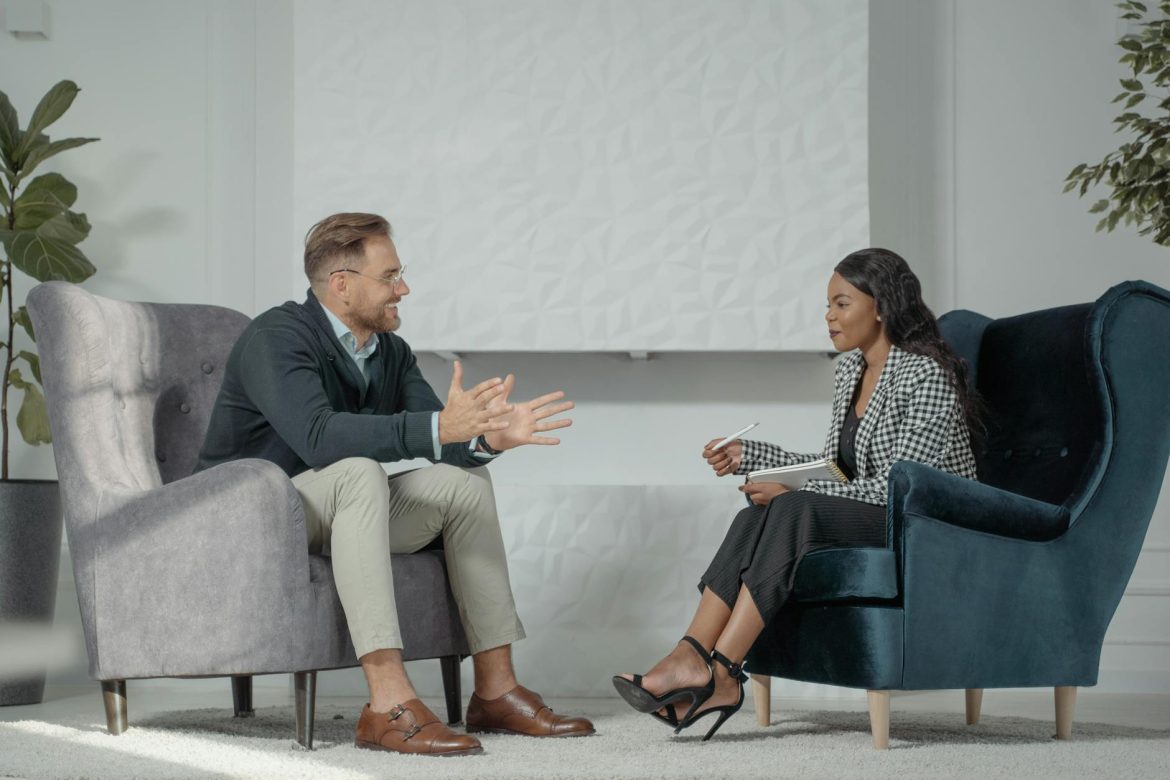Hiring the right candidate can make or break a team. The best questions to ask in an interview are the ones that go beyond the resume, giving real insight into a candidate’s skills, personality, and cultural fit. By asking strategic questions, hiring managers can make better decisions, improve team dynamics, and uncover hidden potential in candidates.
In this guide, we’ll cover 20 of the best interview questions to ask candidates, along with tips on how to tailor them to your specific industry and role.
Why Great Interview Questions Matter
Understanding Candidate Fit
Asking the right questions in an interview helps you understand how a candidate thinks, works, and fits into your company culture. Well-crafted questions reveal their work ethic, problem-solving ability, and interpersonal skills—all crucial for long-term success.
Data & Insights
According to a LinkedIn study, 83% of hiring managers say that finding the right cultural fit is just as important as evaluating skills. Additionally, structured interviews have been shown to be twice as effective in predicting job performance compared to unstructured ones.
Categories of Interview Questions
Different questions serve different purposes. Here’s a breakdown:
1. Behavioral & Situational Questions
These questions help understand how a candidate has handled past situations, which can be a strong predictor of future performance.
- Example: “Tell me about a time you faced a major challenge at work. How did you handle it?”
2. Technical & Role-Specific Questions
These evaluate a candidate’s core skills related to the job.
- Example: “Can you walk me through a complex project you worked on and how you contributed?”
3. Soft Skills & Cultural Fit Questions
These gauge interpersonal skills and adaptability.
- Example: “How do you handle constructive feedback?”
4. Career Goals & Motivation Questions
These questions help assess long-term potential and engagement.
- Example: “Where do you see yourself in five years?”

The 20 Best Interview Questions to Ask Candidates
1. What is your proudest professional achievement and why?
- Purpose: Reveals work ethic and motivation.
- Follow-up: “How did this achievement impact your team or company?”
2. Can you describe a time when you had to solve a difficult problem at work?
- Purpose: Tests problem-solving and analytical skills.
- Follow-up: “What did you learn from the experience?”
3. Tell me about a time you received critical feedback. How did you respond?
- Purpose: Assesses self-awareness and adaptability.
- Follow-up: “How has this feedback shaped your work since then?”
4. What motivates you to do your best work?
- Purpose: Determines intrinsic motivation.
- Follow-up: “What kind of work environment helps you thrive?”
5. How do you handle tight deadlines or pressure?
- Purpose: Evaluates stress management.
- Follow-up: “Can you share a specific instance?”
6. Tell me about a time you had to collaborate with a difficult colleague.
- Purpose: Assesses teamwork and conflict resolution skills.
- Follow-up: “How did you ensure a positive outcome?”
7. What strategies do you use to stay organized and manage multiple tasks?
- Purpose: Evaluates time management and prioritization.
- Follow-up: “Can you give an example of when this strategy helped you succeed?”
8. How do you continue learning and developing your skills?
- Purpose: Identifies growth mindset and adaptability.
- Follow-up: “Can you share a recent skill you’ve learned?”
9. Can you describe a time when you took initiative on a project?
- Purpose: Reveals leadership and proactiveness.
- Follow-up: “What was the outcome?”
10. What’s one mistake you’ve made at work, and what did you learn from it?
- Purpose: Assesses accountability and problem-solving.
- Follow-up: “How did you prevent it from happening again?”
11. How do you handle constructive criticism?
- Purpose: Evaluates resilience and willingness to improve.
- Follow-up: “Can you share an example of feedback that helped you grow?”
12. What do you know about our company, and why do you want to work here?
- Purpose: Assesses research, interest, and cultural alignment.
- Follow-up: “How do you see yourself contributing to our goals?”
13. Can you give an example of a time you exceeded expectations?
- Purpose: Identifies work ethic and dedication.
- Follow-up: “How did you go above and beyond?”
14. Describe a time when you had to adapt to a major change at work.
- Purpose: Tests flexibility and adaptability.
- Follow-up: “What strategies helped you navigate the change?”
15. How do you approach problem-solving?
- Purpose: Reveals critical thinking and strategy.
- Follow-up: “Can you walk me through a real example?”
16. What are your long-term career goals?
- Purpose: Assesses alignment with company vision.
- Follow-up: “How does this role fit into your plan?”
17. How do you handle workplace conflict?
- Purpose: Evaluates interpersonal skills.
- Follow-up: “Can you describe a specific situation?”
18. Tell me about a time you had to meet a tough goal.
- Purpose: Tests perseverance and motivation.
- Follow-up: “What was the outcome, and what did you learn?”
19. What role do you typically play in a team setting?
- Purpose: Identifies strengths and collaboration style.
- Follow-up: “Can you provide an example?”
20. What would your previous colleagues say about you?
- Purpose: Offers insights into work relationships and perception.
- Follow-up: “How do you think you can build similar relationships here?”
How to Customize Questions for Your Company
Tailoring to Company Culture
Make sure questions align with your values. If teamwork is essential, focus on collaboration-based questions. If you value innovation, ask about problem-solving and creativity.
Industry-Specific Adjustments
Tech Industry
- “Can you walk me through a piece of code you’re proud of?”
Creative Roles
- “How do you handle creative block?”
Sales & Marketing
- “Can you share a time you successfully turned a lead into a client?”
Actionable Checklist for Hiring Managers
- ✅ Define key qualities needed for the role.
- ✅ Select 5-7 key questions from this list.
- ✅ Use structured scoring to evaluate responses.
Common Interview Pitfalls & Best Practices
Avoiding Leading Questions
Leading questions can bias responses. Instead of asking “You enjoy working in teams, right?”, try “Tell me about your experience working in teams.”
Reducing Interviewer Bias
- Standardize questions for fairness.
- Use a panel interview to gain multiple perspectives.
Practical Dos & Don’ts
- ✅ Do ask open-ended questions.
- ❌ Don’t rely only on yes/no questions.
- ✅ Do take notes to compare candidates later.
- ❌ Don’t let first impressions dictate decisions.
Real-Life Success Stories
Case Study: How Great Questions Led to a Perfect Hire
An HR manager at a leading tech firm found their top-performing developer by asking, “Tell me about a time you taught yourself a new skill on the job.” The answer revealed the candidate’s self-motivation and adaptability, making them an ideal hire.
Expert Insights
“The best interviewers know how to dig deeper into a candidate’s answers. A well-placed follow-up question can reveal more than any resume ever could.” – HR Expert, Jane Doe
FAQ
1. How do I evaluate a candidate’s answers effectively?
Use a structured scoring system to assess relevance, clarity, depth, and alignment with company values. Taking notes and comparing responses with other candidates can also help.
2. What if a candidate struggles to answer a question?
Give them a moment to think or rephrase the question in a different way. Encouraging them with a related example can also help them articulate their thoughts.
3. How many questions should I ask in an interview?
Aim for 5-7 key questions that align with the role and company culture. This keeps the interview focused while allowing for meaningful discussion.
4. Should I ask the same questions to all candidates?
While structured interviews are beneficial, adjusting a few questions based on a candidate’s experience or the role’s requirements can help gather more relevant insights.
5. How can I make interviews more engaging and comfortable for candidates?
Start with an icebreaker, maintain a conversational tone, and provide clear expectations. Ensuring a welcoming environment helps candidates showcase their best qualities.
Final Thoughts
The key to a successful interview is asking the right questions. By using this guide, you can make informed hiring decisions, build a strong team, and create a structured interview process that consistently brings in top talent.
By optimizing your interview questions, you’re not just hiring an employee—you’re investing in the future of your company.



0 responses to “20 Best Interview Questions to Ask Candidates”